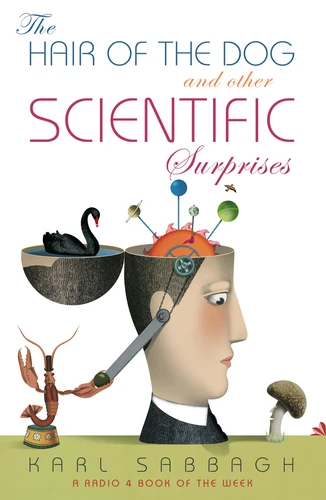The Hair of the Dog. And Other Scientific Surprises
Par :Formats :
Disponible dans votre compte client Decitre ou Furet du Nord dès validation de votre commande. Le format ePub protégé est :
- Compatible avec une lecture sur My Vivlio (smartphone, tablette, ordinateur)
- Compatible avec une lecture sur liseuses Vivlio
- Pour les liseuses autres que Vivlio, vous devez utiliser le logiciel Adobe Digital Edition. Non compatible avec la lecture sur les liseuses Kindle, Remarkable et Sony
- Non compatible avec un achat hors France métropolitaine
 , qui est-ce ?
, qui est-ce ?Notre partenaire de plateforme de lecture numérique où vous retrouverez l'ensemble de vos ebooks gratuitement
Pour en savoir plus sur nos ebooks, consultez notre aide en ligne ici
- FormatePub
- ISBN978-1-84854-464-2
- EAN9781848544642
- Date de parution10/11/2010
- Protection num.Adobe DRM
- Infos supplémentairesepub
- ÉditeurJohn Murray
Résumé
Science is full of surprises: the peculiar peepshow beginnings of baby incubators; the unexpected positive fallout from the H-bomb; the dinosaurs that caused sonic booms; the irrational nature of the number pi; the fifth taste sensation lurking in everyone's taste buds which nobody knew about (except for the Japanese). Whilst shedding light on these conundrums, Karl Sabbagh shows that seemingly trivial queries or assumptions lead to a deeper understanding of how science works.
Who would have thought that scientists would turn to the hypothesis 'All swans are white' to determine the stability of the entire universe? Or that if we choose to spend our hard-earned money on other people it might make us happier than if we spend it on ourselves?
Who would have thought that scientists would turn to the hypothesis 'All swans are white' to determine the stability of the entire universe? Or that if we choose to spend our hard-earned money on other people it might make us happier than if we spend it on ourselves?
Science is full of surprises: the peculiar peepshow beginnings of baby incubators; the unexpected positive fallout from the H-bomb; the dinosaurs that caused sonic booms; the irrational nature of the number pi; the fifth taste sensation lurking in everyone's taste buds which nobody knew about (except for the Japanese). Whilst shedding light on these conundrums, Karl Sabbagh shows that seemingly trivial queries or assumptions lead to a deeper understanding of how science works.
Who would have thought that scientists would turn to the hypothesis 'All swans are white' to determine the stability of the entire universe? Or that if we choose to spend our hard-earned money on other people it might make us happier than if we spend it on ourselves?
Who would have thought that scientists would turn to the hypothesis 'All swans are white' to determine the stability of the entire universe? Or that if we choose to spend our hard-earned money on other people it might make us happier than if we spend it on ourselves?



